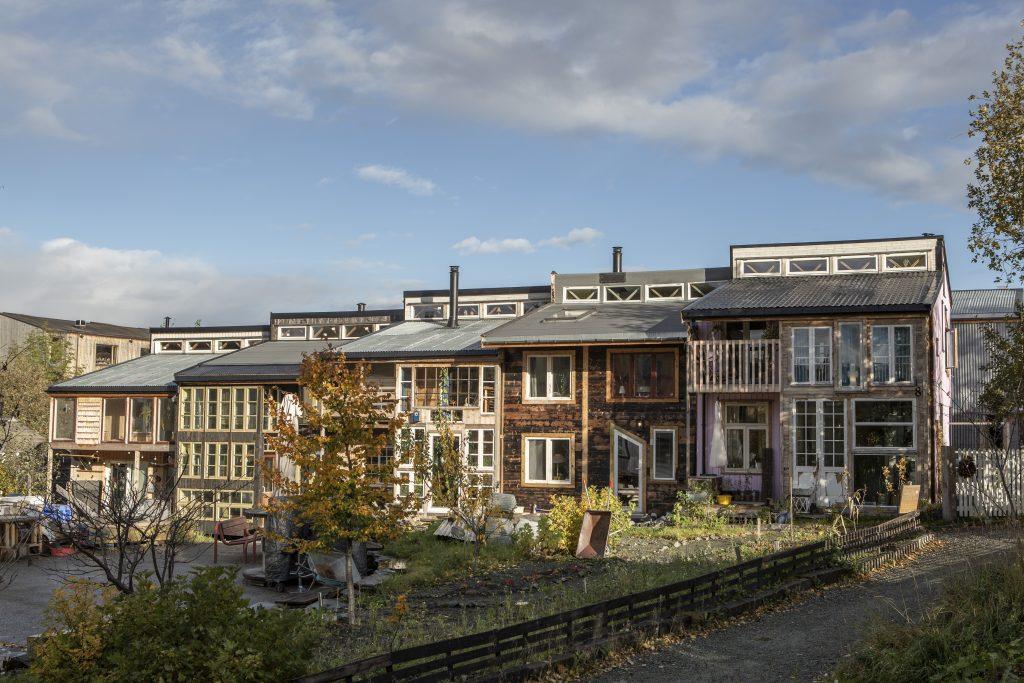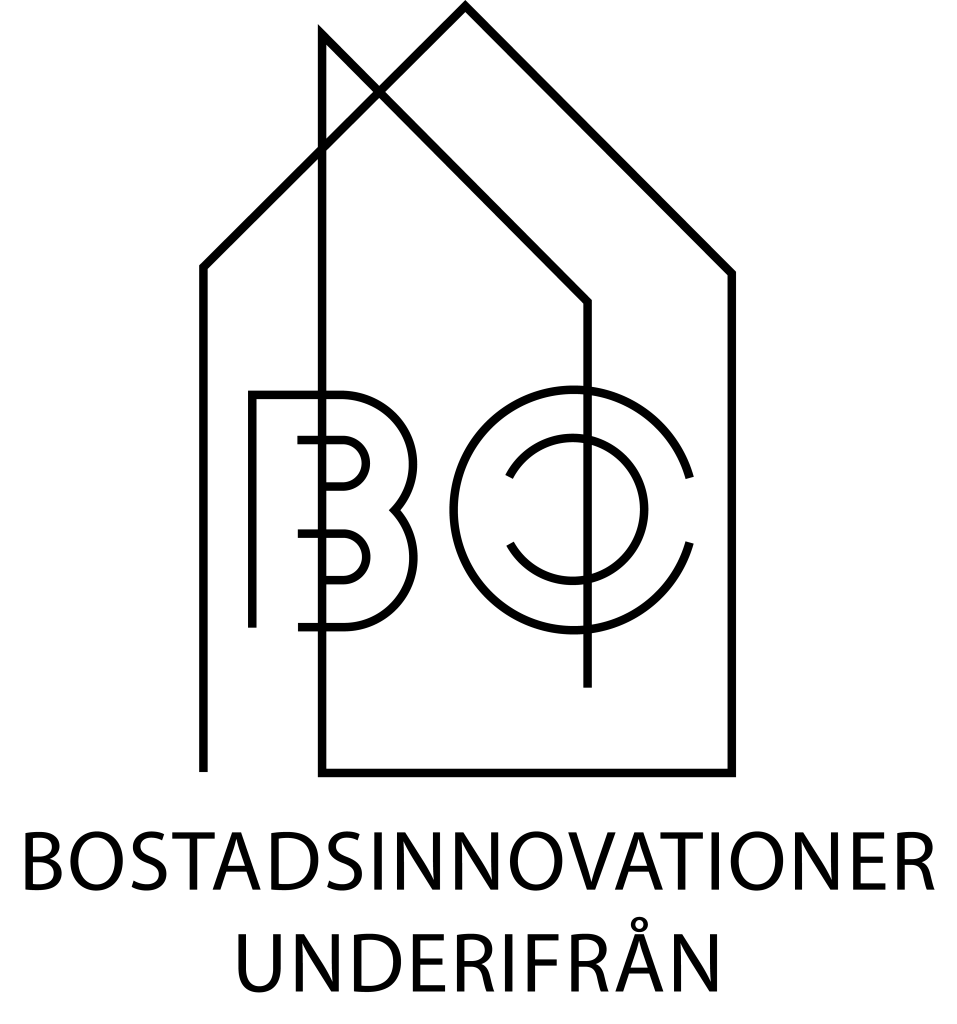
Housing innovation from the bottom up:
Creating co-housing and co-living for economically vulnerable groups
There is a severe lack of affordable housing in Sweden impacting on living conditions for groups with weaker economy. With this initiative, we will learn from and further develop these projects and their collective knowledge, in order to concretely create affordable co-building and co-housing.
Funder:
Vinnova
Budget:
3,8 million SEK
Time period:
Nov 2021–Aug 2026
Participants
University of Gothenburg:
Jaan-Henrik Kain, project leader
Jenny Stenberg
Egnahemsfabriken Tjörn:
Tinna Harling
Anna Berglund
Söderhamn municipality:
Sara Eby Palm
Bitti Alvin Lehmann
Jonas Ryberg
Malin Rönström
Marianne Johansson
Stenbacken housing and work cooperative:
Maria Nordström
Amanda Öhr
Malin Åhman
Hälsinge Mureri:
Kenneth Bolinder
Swedish Union of Tenants:
Jesper Bryngelsson
Emmeli Wulfstrand
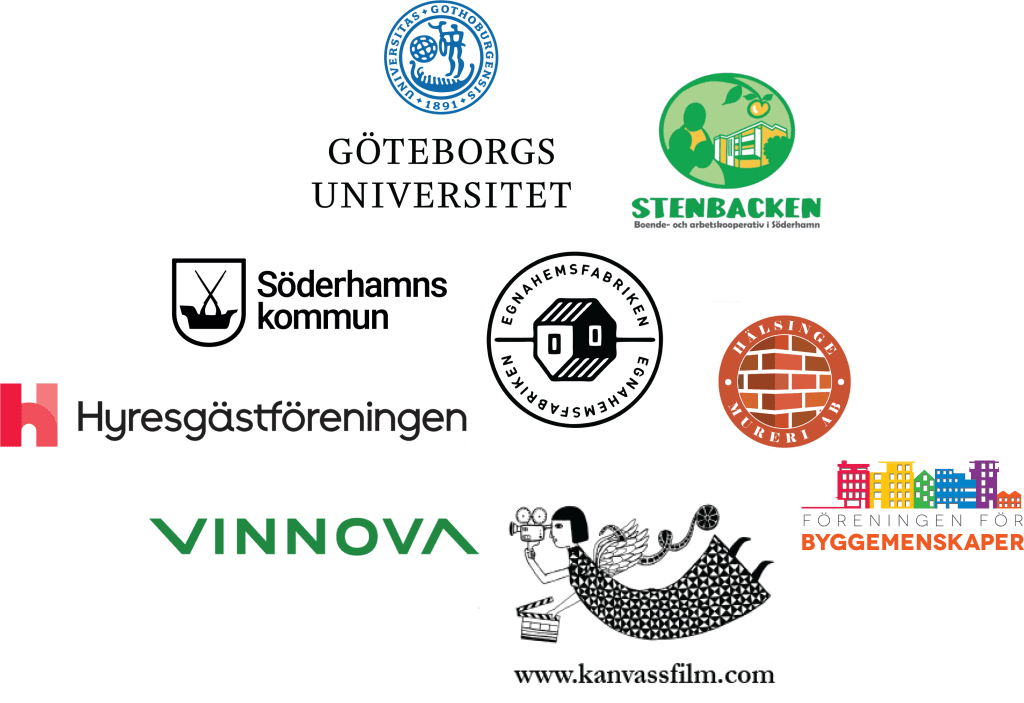
PROJECT RESULTS
— What we learned
”Within idea-based and collaborative housing provision, it is both necessary and socially, societally and economically enriching to leave a narrow focus on housing itself and instead manage housing provision as an active and powerful subset of the local community’s development in a broad sense”
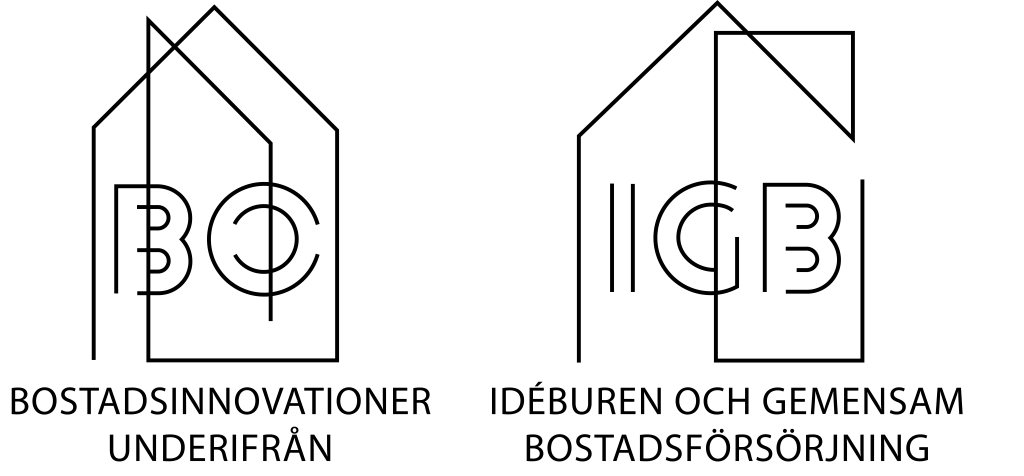
We have here merged the results from the two sister projects Housing innovation and Idea-based housing.
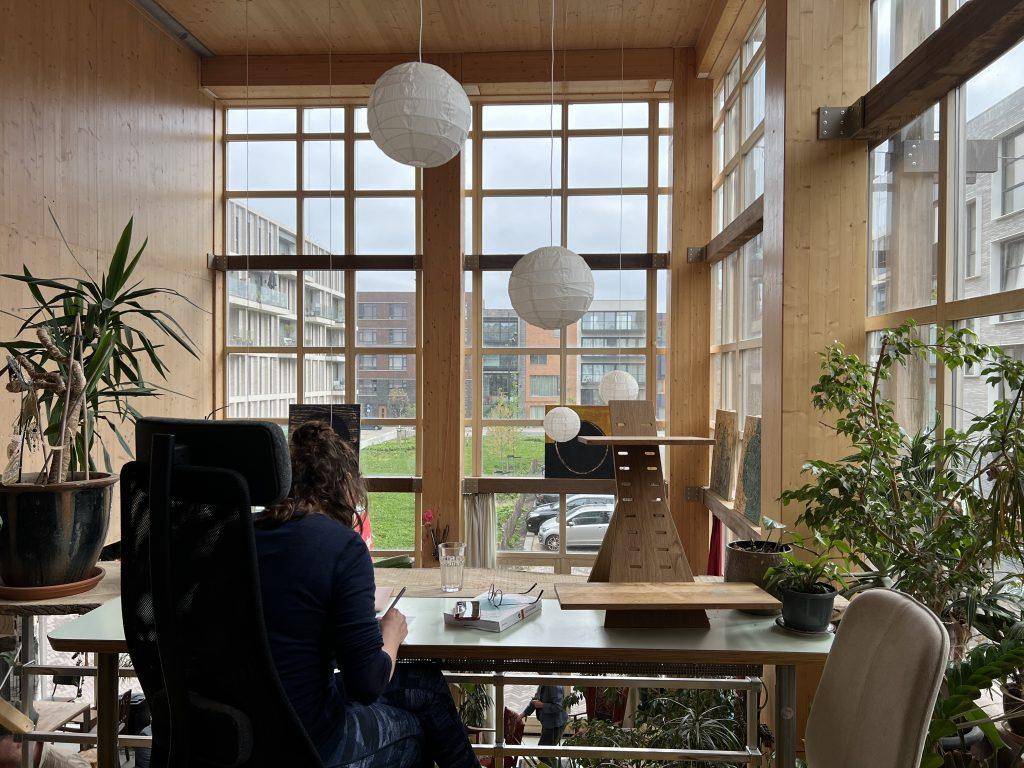
Study visits 22-25 April 2025
A delegation of eight persons visited the Netherlands and Belgium for four days to learn how these countries work with co-housing. Our focus was housing construction projects where civil society has played a strong role and where the housing has become affordable. Most of the projects we visited were newly built, but we also found some older projects that were interesting from a particular perspective and where we had the opportunity to see what this type of housing looks like after a number of years. We also visited a renovation project, two business clusters and a worker cooperative. There is an incredible amount to learn from these countries for Sweden. Laws, regulations and standards differ between countries and, for example, a change is probably needed in Sweden regarding joint ownership of land and properties. Another important question is if and how Sweden can develop civil society-driven housing provision in a context where there is no system for social housing. We believe that there is reason to reconsider the negative attitudes towards social housing when Sweden (hopefully) develops an active and more comprehensive national housing policy with social ambitions. Without a functioning housing policy, the responsibility is left to the market, which obviously cannot respond adequately, and to civil society, which cannot meet such a major commitment without concrete support from the state and from municipalities – if housing is to become permanently affordable. This is what we have learned in the Netherlands and Belgium.
Söderhamn member of NETCO 2025
NETCO is an international Network of Cities for Collaborative Housing that exchanges experiences and learns from each other. The fact that Söderhamn is now the first Swedish municipality to become a member means that the municipality is included in the next EU application for funding and may have the opportunity to receive support to participate in these learning processes. Many countries have come further than Sweden when it comes to collaborative housing, so this opens the door to new worlds.
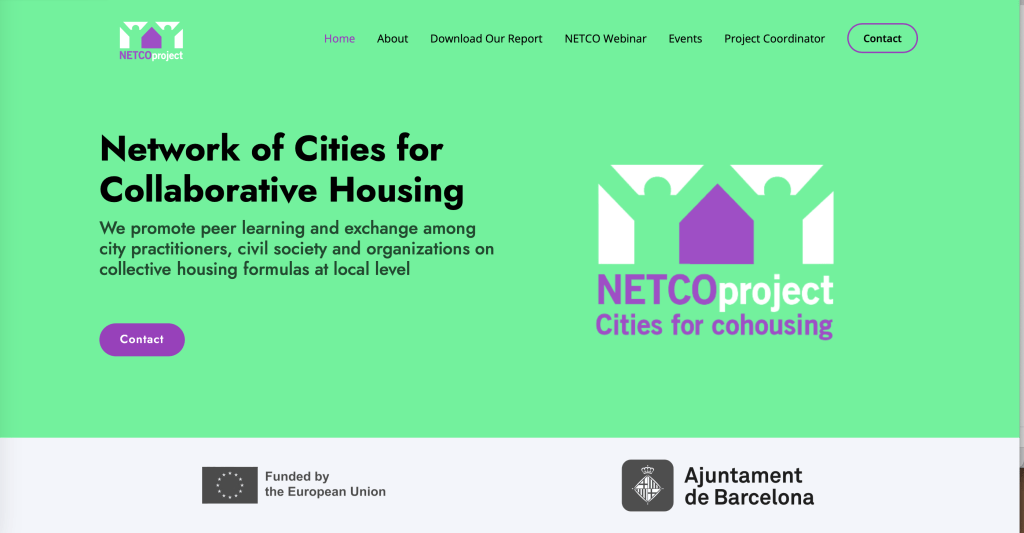
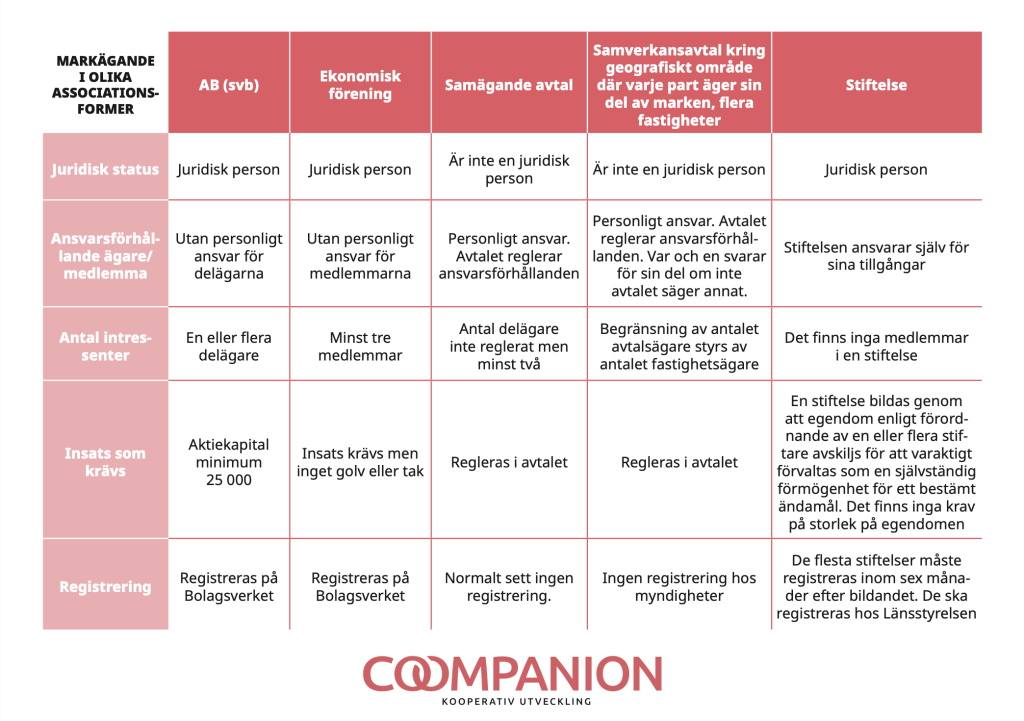
Matrix about form of association 2025
Perhaps the biggest challenge for idea-based and collaborative housing supply is financing. It is very difficult in Sweden for civil society to get financing at sufficiently low capital costs to make housing affordable. A challenge that goes hand in hand with financing is the form of association for ownership. That choice plays a big role in how you can borrow money and what it costs. To support this choice, Coompanion made a matrix that describes different aspects of five different forms of associations.
Roads built in Husebybergen 2025
Internal roads and water and sewage have been completed in Husebybergen and soon the community house will be rolled into place so that the 17 house builders have somewhere to warm up and eat while they build their homes, starting in spring 2025. The community house was designed by the group and has been built in a self-construction course – a collaboration between Egnahemsfabriken and Billströmska folk high school.
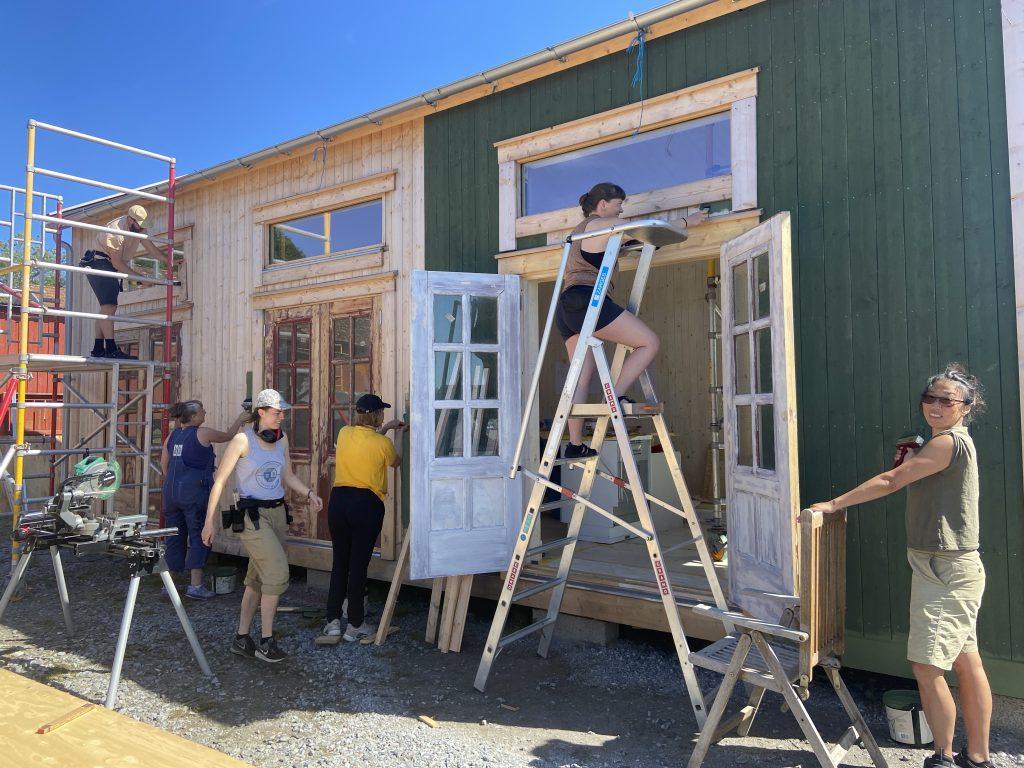
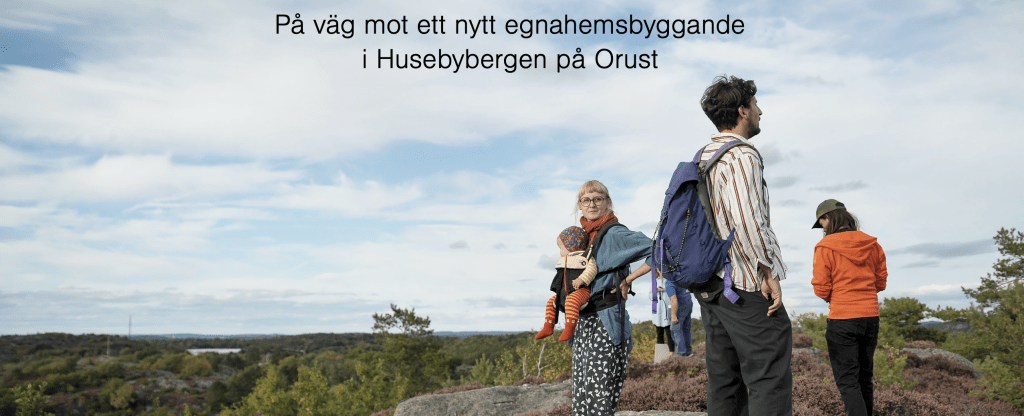
Book about Egnahem för alla 2024
The research projects have learned from a cohousing project that was funded by Vinnova, called “Egnahem för alla”. In that project 17 residential buildings are selfconstructed at Husebygergen on the island Orust in Western Sweden, with process support from Egnahemsfabriken at Tjörn, also project participant in the research projects. This report to Vinnova describes how the work was done and also draws interesting conclusions about the challenges with financing.
Planning program Söderhamn 2024
In a municipality threatened by depopulation like Söderhamn, the conditions are different than i the south and the municipality was looking for ways to retain its population and attract new citizens. Ide-based housing provision was seen as a great opportunity and they developed a planning program for the Northern City, where Stenbacken is located, which aimed to facilitate the development of cohousing and selfconstruction.
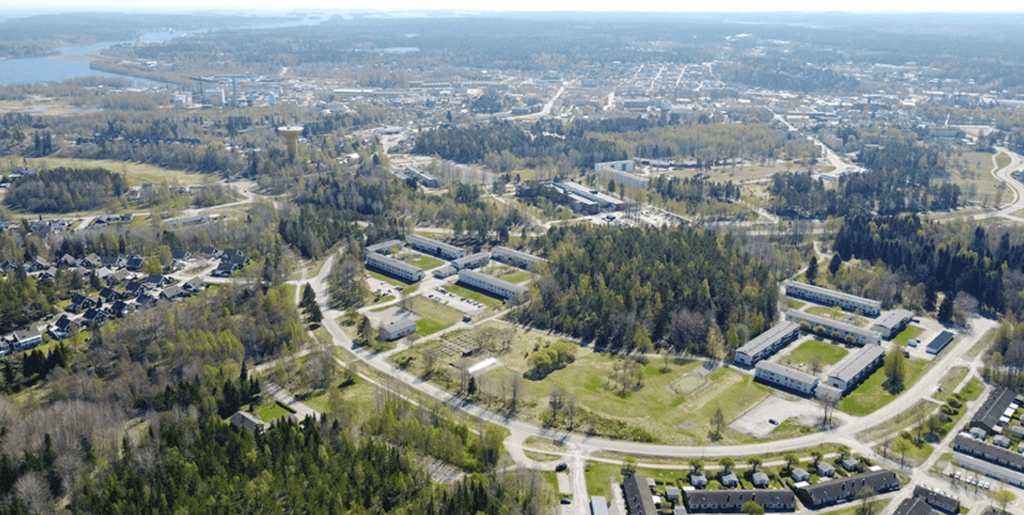
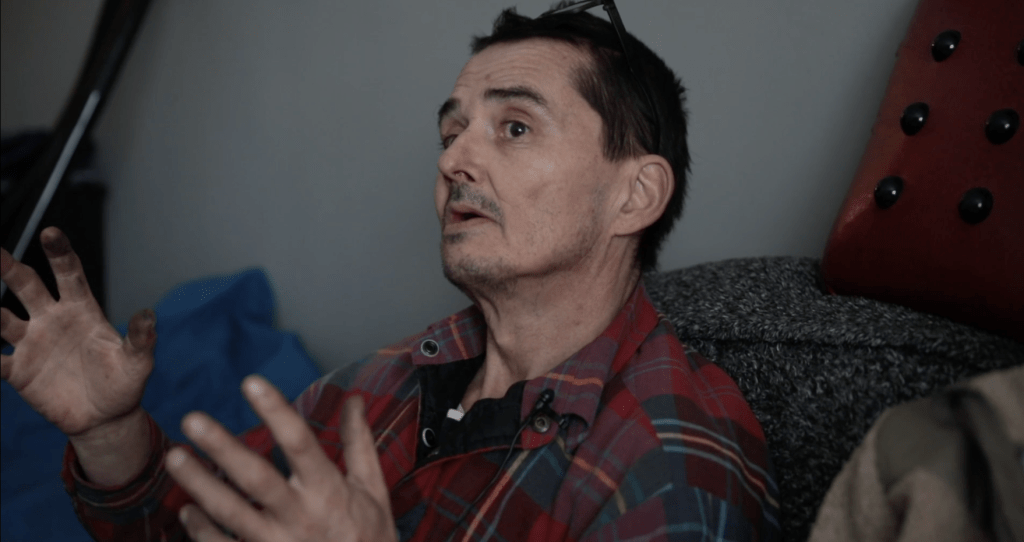
Film about Stenbacken 2024
One of the participants in the research, is Sweden’s first (as far as we know) cooperative for both working and housing: Stenbacken in Söderhamn. It was started as a housing cooperative for vulnerable people, but it was soon discovered that the prerequisite for success was entirely dependent on investing also in work for the residents. In the film, they describe how they worked. See the film (Swedish):
Book about La Borda 2024
A study visit to the housing cooperative La Borda in Barcelona provided an incredible amount of inspiration. They showed that it is possible for inhabitants to create and build apartment buildings in the middle of the city, with a high degree of ecological choices and at a cost that is affordable for those who live in the house – they rent their apartments. Spain has come significantly further than Sweden when it comes to financing projects like this. The book provides an insight into the house and briefly describes what has been done to succeed.
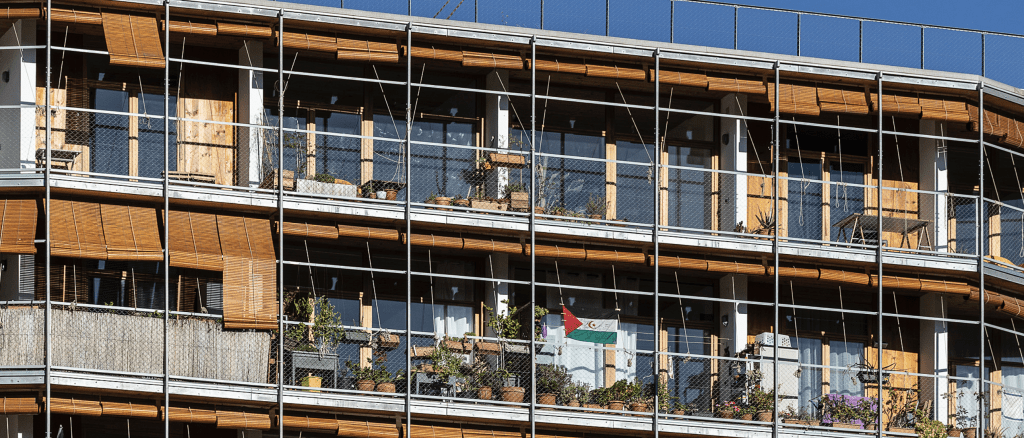
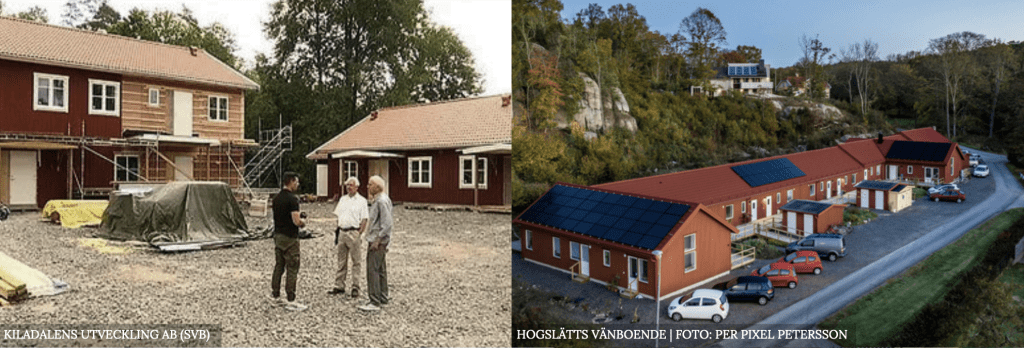
Book about financing 2024
Financing is the biggest challenge for the idea based and collaborative housing provision, and we learned early on that ”municipal garantee” is a very interesting tool that can determine whether or not a house will be created. We have written a book on the topic, aimed at municipal actors who often have poor knowledge of this possibility or do not know how it can be used within the laws and rules that govern municipal operations.
Study trip to Denmark 2024
Denmark is very interesting to learn from as it has a long tradition of collective housing. In Roskilde municipality they have come so far that the officials do not need the politicians’ approval at every step, they already have a mandate to work with cohousing and are often using competitions of various kinds as a way forward. See the films about Munksø gård in Roskilde municipality and Grønne Eng in Copenhagen municipality (Danish):
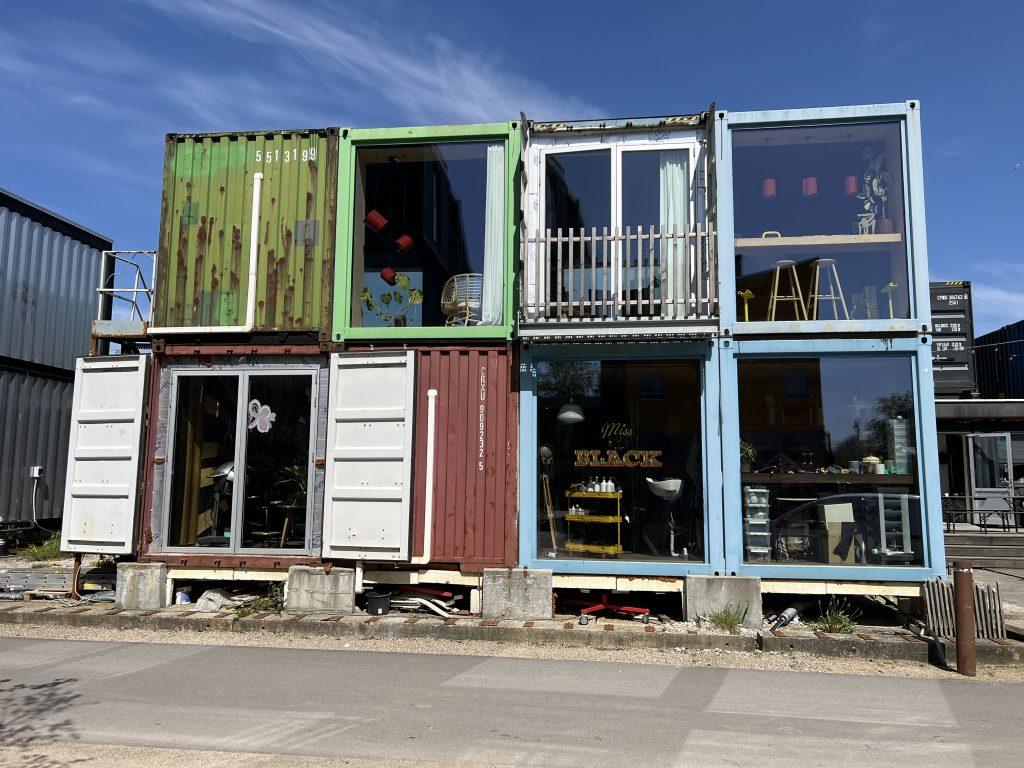
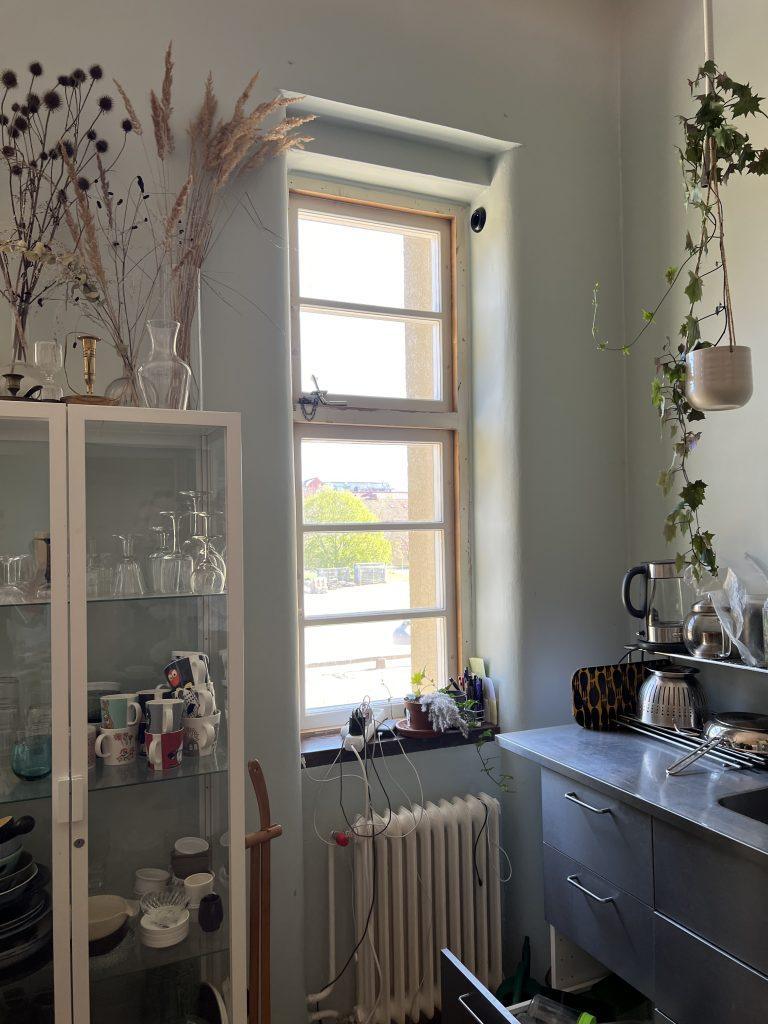
Film about Röda Oasen 2024
On the way to Denmark, we visited Röda Oasen in Malmö, who implemented their cohousing in an existing building, wich was an advantage in terms of financing as they had a building to mortgage so that civil society did not have to take such a large financial risk initially. See the film (Swedish):
Film about Gården 2024
The research project has learned a lot from the collaborative housing project of Gården in Uppsala, who points to two important prerequisites for success: that the municipality is familiar with and knowledgeable about this way of building, and that civil society has a very skilled ‘project pilot’ who stands by the residents’ side throughout the process. See the film (Swedish):
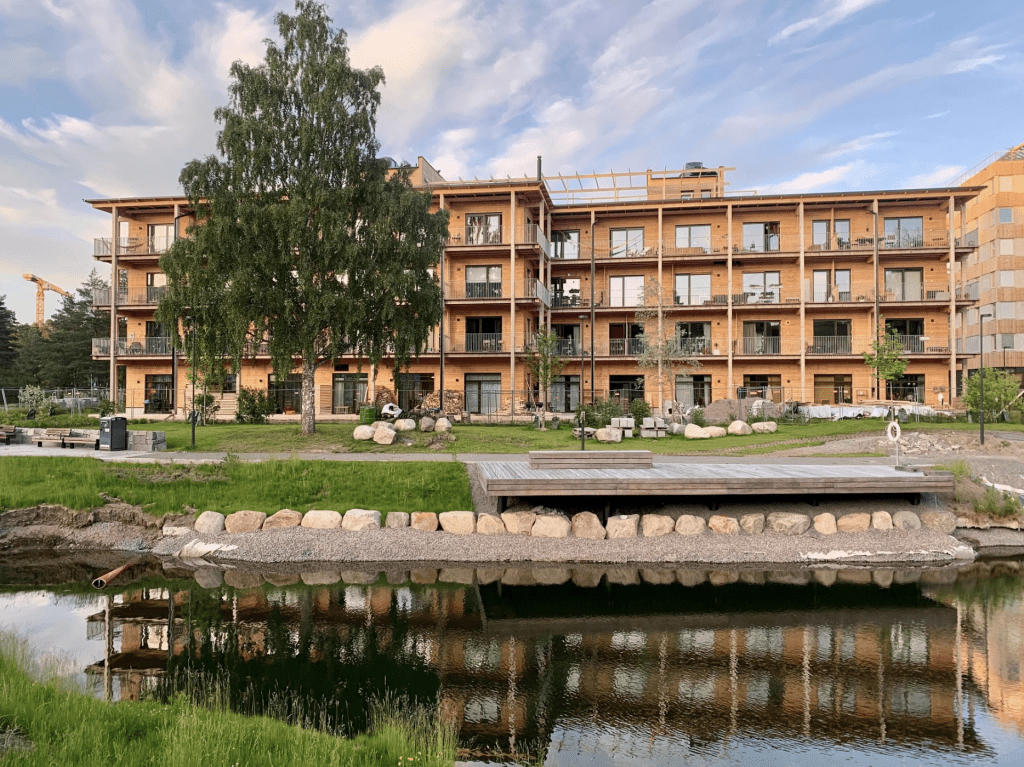
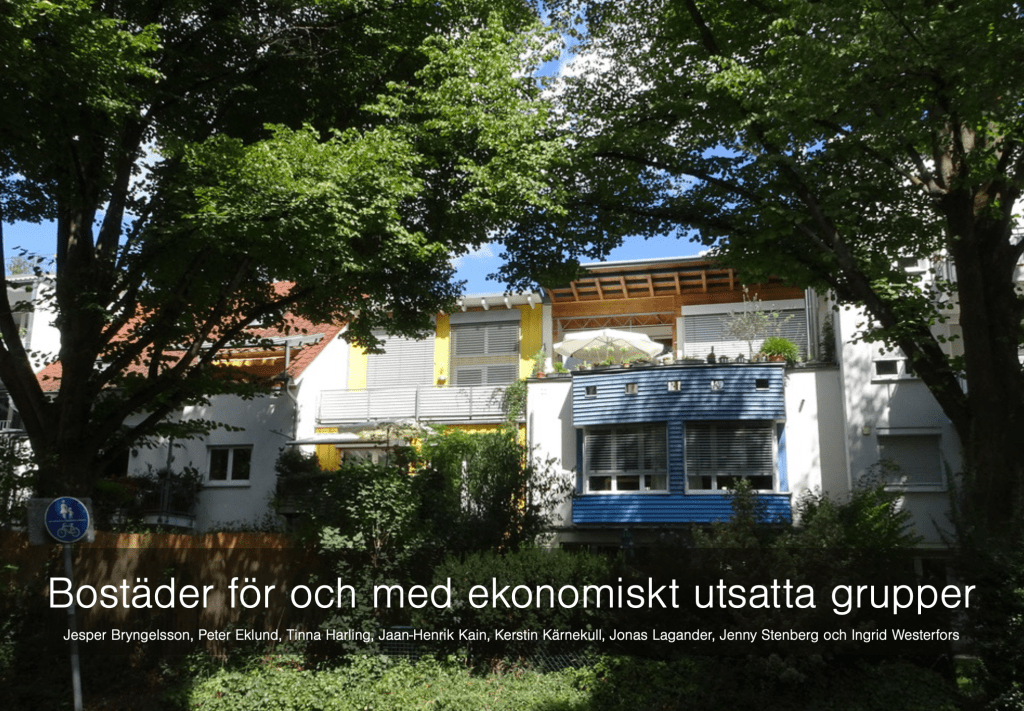
Book about the prerequisites for idea-based housing 2024
To learn more about systems for housing financing and association and tenure forms, a review was in collaboration with our sister project made, of known challenges but also success factors for collaborative housing, with a focus on economically vulnerable groups in society. The review resulted in a book which described the problems and how in various housing projects the actors met the challenges and succeeded in constructing homes.
Study trip to Tanum 2024
The project used study visits as an important way of learning and in line with this we went to the municipality of Tanum on the west coast of Sweden, where one of the country’s leading examples of collaborative housing with a focus on economically vulnerable groups in society can be found: Hogslätt’s vänboende with twelve homes for older women. An important success factor was that civil society managed to convince the politicians in the municipality of the social benefit of providing a ‘municipal guarantee’. The good result implied that the municipality supported civil society to realize another collaborative housing project: Andreastorpet’s vänboende.
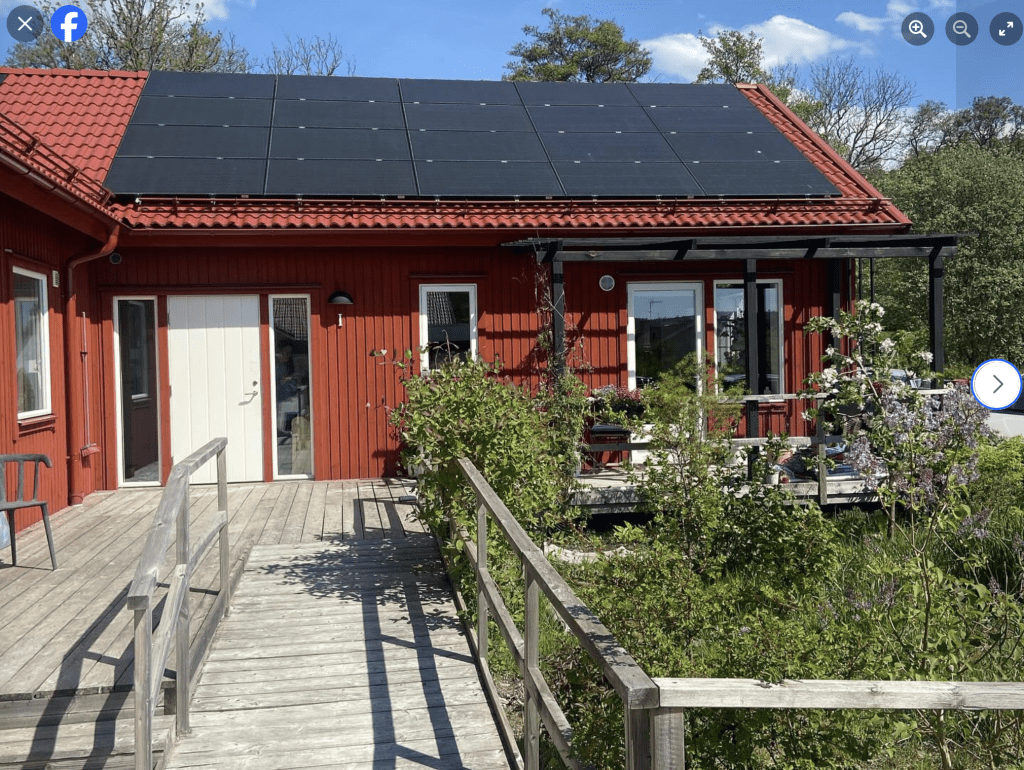
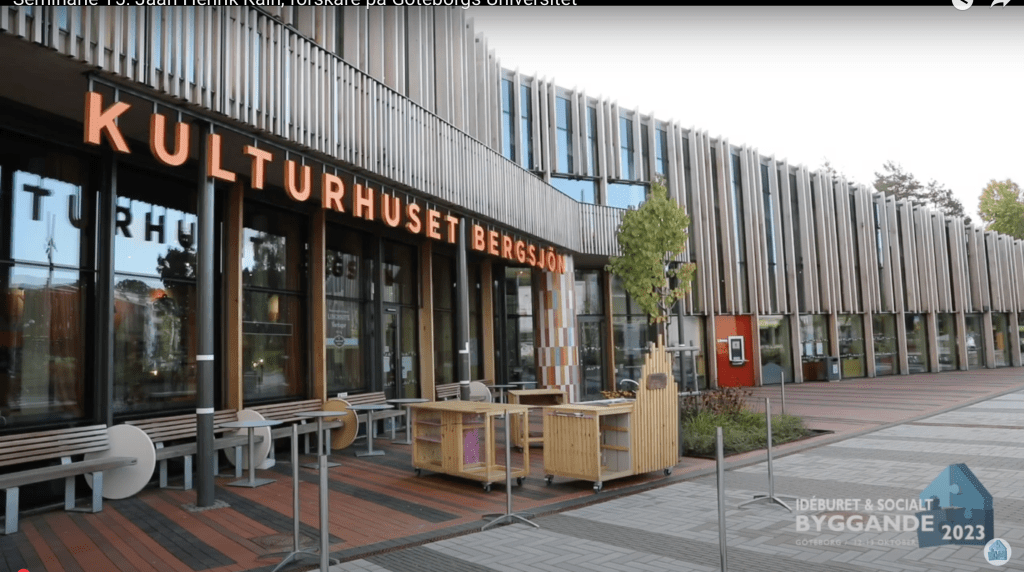
Conference Idea-based housing 2023
We presented and discussed the two research projects at the very popular conference ”Idea-based housing” which is held every two years in a city in Western Sweden. The conference attracted practitioners as well as researchers and the thirst for knowledge was great since the country suffers from an extreme housing shortage and market players have been unable to build almost any housing at all. See the presentation (Swedish):
Conference Idea-based housing 2023
At another seminar at the conference, the Swedish Union of Tenants, who is an active participant in both research projects, and the Co-Linging Association, who is active participant in one, explained how they want to approach idea-based housing provision from the perspective of offering rental apartments and not force people who want to act and live like this to buy their homes. The challenges are greater if you want to have a rental property as a form of lease, but it is possible. See the presentation (Swedish):
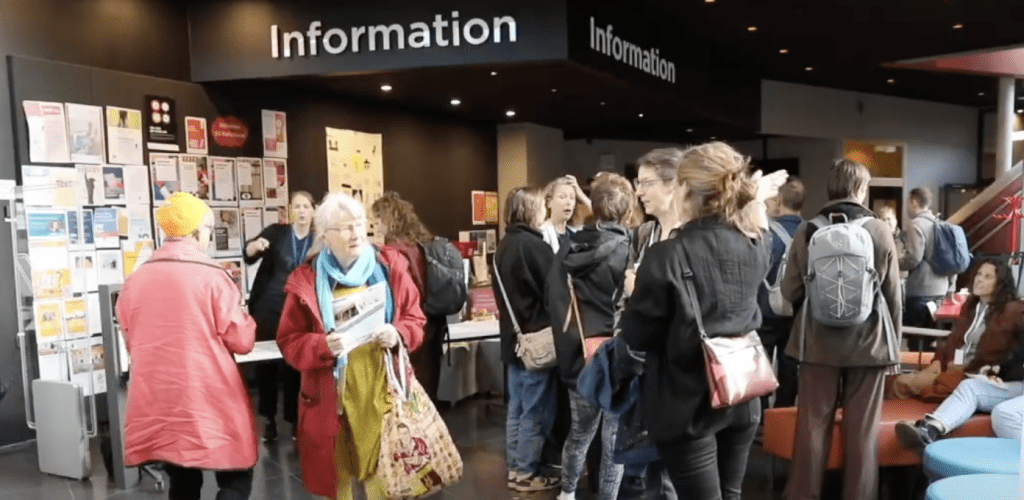
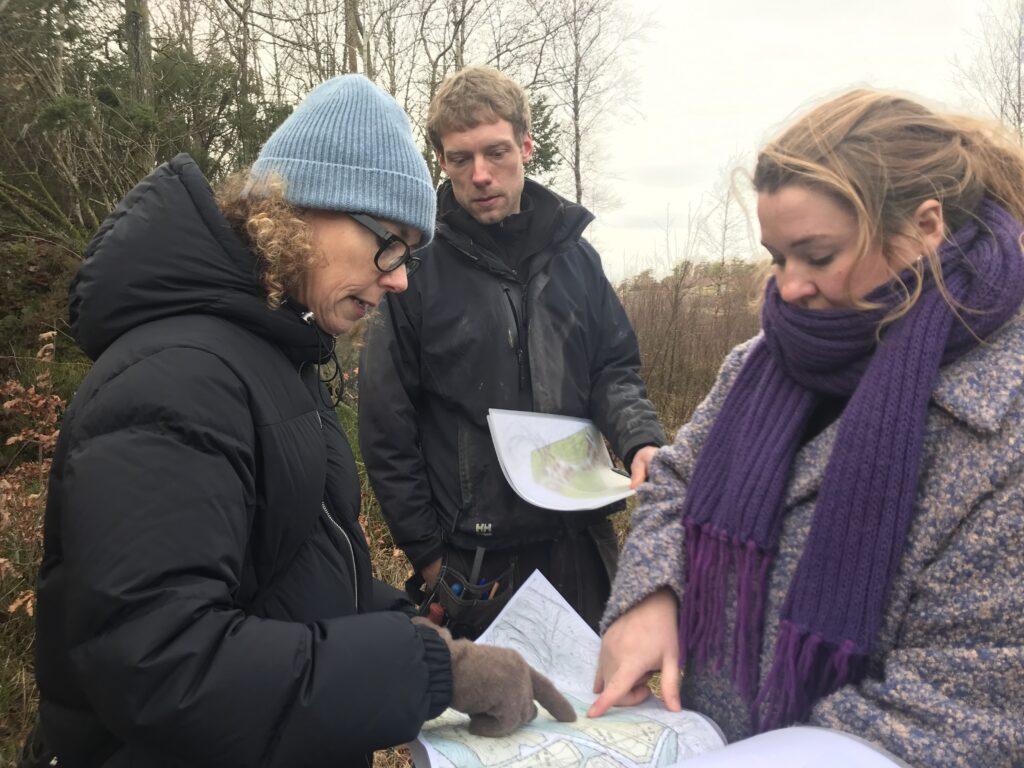
Film about Husebybergen 2022
The cobuilding project of seventeen homes and a community house in Husebybergen in Ellös, Orust, was one of the housing projects that the research project learned from. This film from tells about the early process of developing the area and it will be supplemented at the end of the research project when the Huseby residents have hopefully finished building their homes. See the film (Swedish):
Book about Svartlamon 2022
A study visit to Norway provided new knowledge about housing construction with and for people with normal or low budgets. Through self-construction and reuse of building materials, beautiful and functional houses have been created in Svartlamon for 20% of what new housing in the country otherwise costs. Those who live together built their own house and then rent it from the foundation. The book describes how they have worked and contains many pictures of the area. Read the book:
Read the book (English) (Swedish)↗
